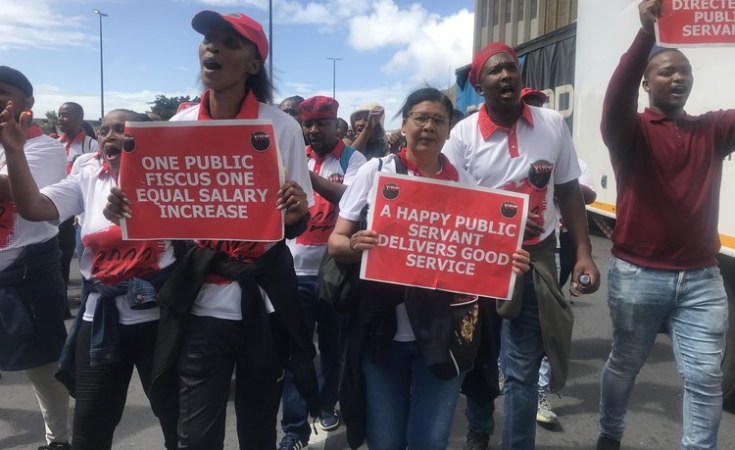Union has failed to win public support for its strike, but the government should listen to its demands
It would be a pity if the cruel behaviour and callous remarks of some members of the National Education Health and Allied Workers Union (NEHAWU) blinded public opinion to the reasons for their strike.
The strike over wages has paralysed some hospitals and government offices this week. Some union members have defied a court order preventing essential workers from going on strike. And horrifying stories have circulated about strikers who stopped doctors from operating, closed down hospital pharmacies and linen supplies, blockaded staff inside hospitals and prevented new shifts from entering and even attacked an ambulance. A photograph has emerged of a man with a sjambok in a hospital corridor and there have been stories of strikers who were drunk and threatening.
COSATU has condemned this behaviour. By failing to do so as well, and by failing to take quick and visible action against those responsible, NEHAWU has lost a precious opportunity to win public support for the strike.
Strikes are always disruptive - that is the point of a strike - and strikes by workers in key sectors like health and education all the more so. But NEHAWU's complaints about an understaffed and underpaid public service should resonate with a public only too familiar with the effects: overcrowded classrooms and hospital wards, exhausted teachers and health workers, long queues at government offices and poor service from overworked public servants.
Some people like to claim that South Africa's public service, with 1.16 million employees, is bloated. That may be true at some levels. But over 160,000 public sector jobs were vacant as of March 2022, including over 26,000 in hospitals.
As for salaries, payment of employees as a share of total government spending has been falling over the last ten years, from 36% in 2013-14, to 32% in 2022-23. Meanwhile, government spending on interest has ballooned from 10% to 15% in the same period.
It should not have been difficult for NEHAWU and the other unions who did not sign last year's wage agreement to get the public on their side. After all, these are many of the workers who propped up the country during the Covid pandemic.


